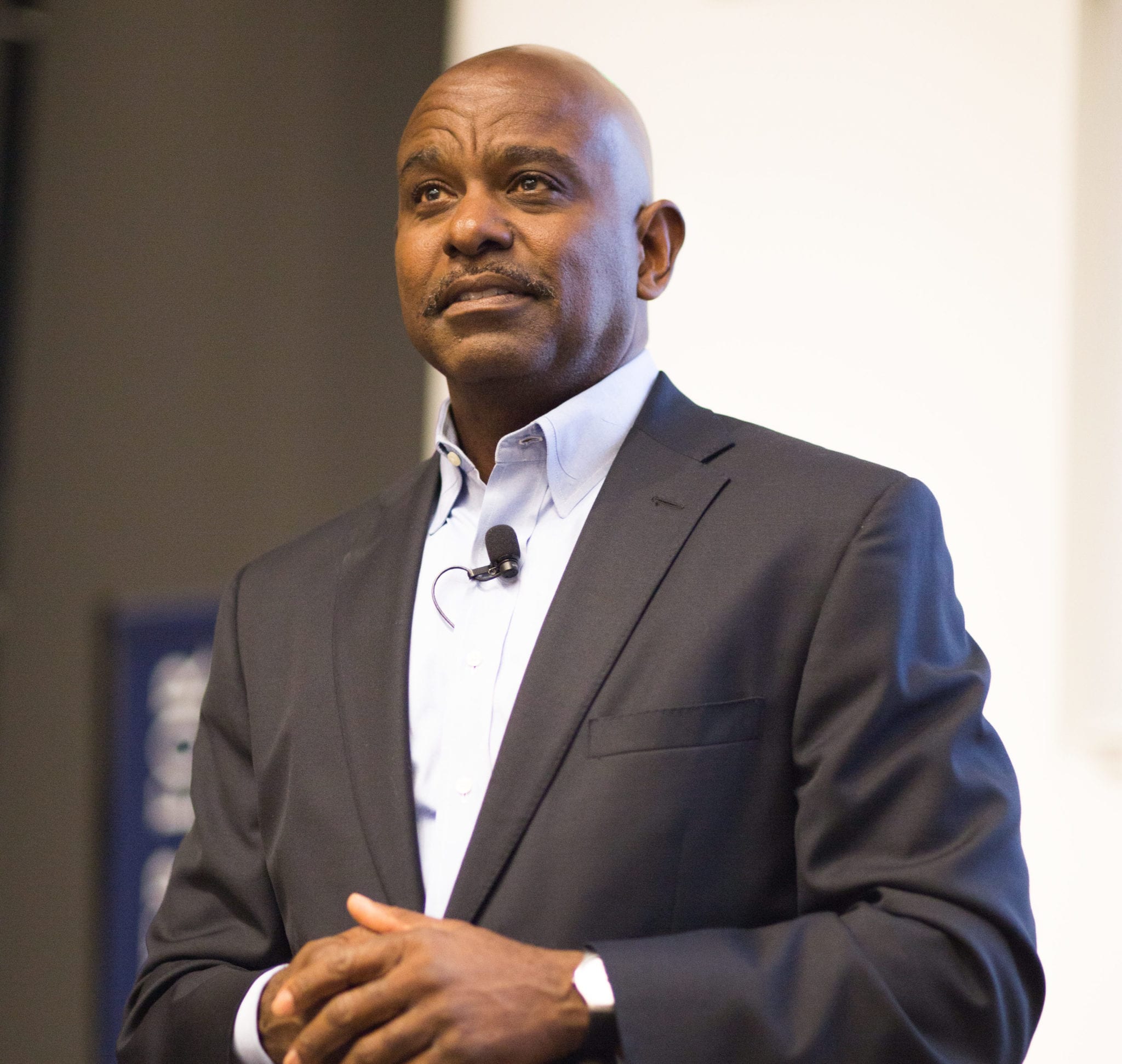
Drawing from a distinguished 35-plus-year career at Fluor Corporation, a Fortune 500 engineering and construction company, Loyola Marymount University alumnus Dwayne Wilson ’80 shared his life experiences with students, encouraging them to take risks.
“I look back now at my time at Loyola – the size, the intimacy of learning, the ethics, the philosophical lessons. All those teachings meant a lot to me,” said Wilson. “You don’t recognize that until much later in life when you reflect, and when you’re making decisions using the core of who you are.”
Wilson earned his bachelor’s degree in civil engineering and connected with Fluor – a global corporation that employs more than 60,000 workers across 100 countries – when they were recruiting on campus. Fluor’s rotational estimating program interested Wilson, particularly the opportunity to rotate through different roles.
“That was the first risk – four years of engineering and I wouldn’t be doing engineering,” said Wilson. “It’s fine to take risks as long as you have a back-up plan. My back-up plan was I could go back to engineering.”
The position gave him a broader view of the corporation, and elucidated how each engineering discipline is needed to construct a project. The position helped Wilson develop his estimating skillset, which gave him access to senior executives. It also gave him a chance to work on projects around the world and see how they came together.

Thirteen years after graduation, Wilson took on his first true project manager role which required him to relocate his family to Kansas. In his first government project, he worked with the National Oceanic and Atmospheric Administration to modernize the National Weather Service. Fluor was the company responsible for implementing the Doppler technology, siting more than 400 radars across the nation so that at 10,000 feet the country is blanketed with radar.
“That’s how you’re able to get the accuracy in the weather forecasting that we see today,” Wilson explained.
“What does this have to do with civil engineering?” asked Wilson. “Each move, each change in responsibility was a risk. There were roles where I didn’t know the individuals or technology, or the client didn’t know me, so there was a skillset that I had to develop.”
One of Wilson’s later projects with Fluor focused on the Savannah River Site, a 310-square-mile site created in the 1950s to produce tritium and plutonium to develop nuclear weapons. It was later designated a superfund site, requiring environmental remediation. Wilson was responsible to the U.S. Department of Energy for the safe removal of nuclear waste and overall management of the site.
The project called on all the skills he had developed over the years, and also required him to develop new ones. The position required him to meet with state and U.S. representatives, as well as travel to Washington, D.C. to brief officials on the project.
“This has nothing to do with where I started, but has everything to do with understanding the need to take risks, the need to be flexible and the need to continue growing,” said Wilson.
In 2016, Wilson retired as senior vice president at Fluor Corporation. His professional journey exemplifies what a Seaver graduate can do with their education.
“LMU provides you with a tremendous education building core values,” said Wilson. “Your career is going to take deviations, so go ahead and take that risk. But at the core, always be good at something. For me, it was engineering.”
Dwayne Wilson’s talk was delivered on Nov. 11, 2016 as part of the Seaver Spotlight series organized by the Center for Student Success.



